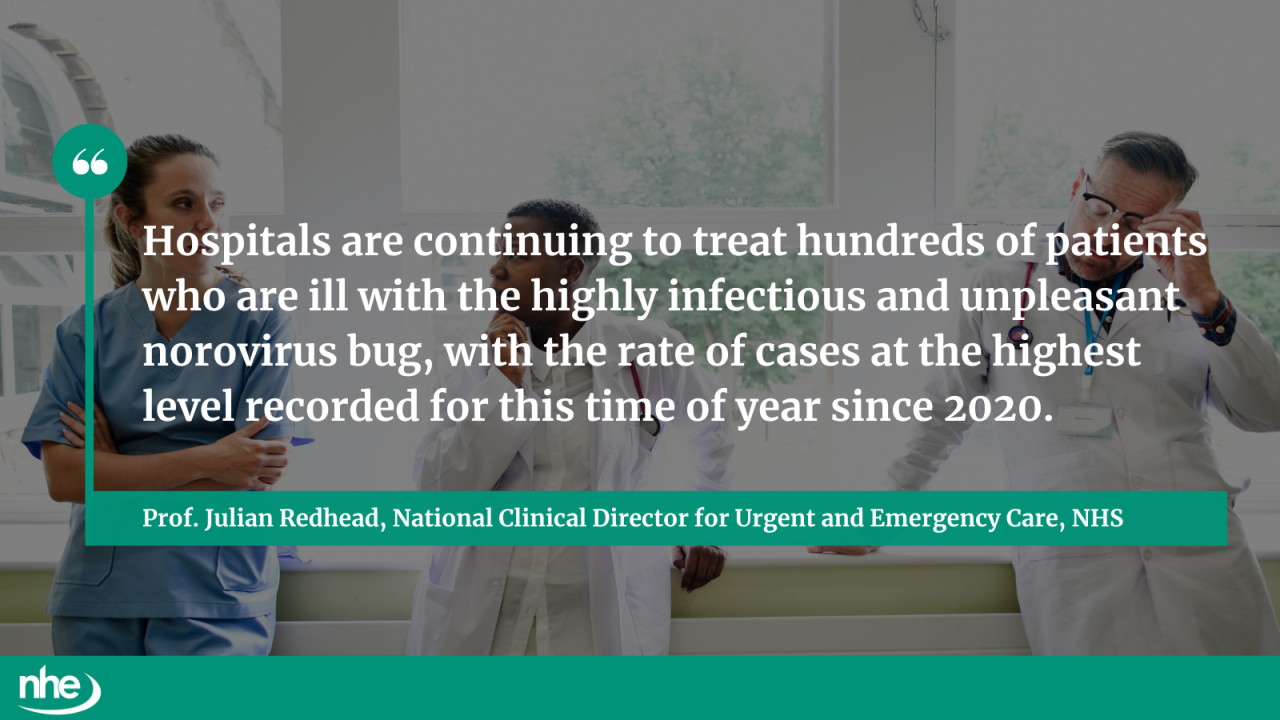The NHS has reported a significant increase in norovirus cases, leading to the highest hospital occupancy rates seen so far this winter. Last week, 961 patients a day were hospitalised with norovirus, marking a 7% rise from the previous week and a staggering 69% increase compared to the same period last year.
Data published today by the NHS highlights the growing strain on hospital resources, with an average of 98,101 patients in hospital each day last week, surpassing any other point this winter. Adult hospital bed occupancy reached a record high of approximately 96%.
In addition to norovirus, other winter viruses continue to circulate. Despite a decline in flu rates since last month's peak, over 2,462 patients were hospitalised with the illness daily last week, with 122 requiring critical care. COVID-19 cases showed a slight decrease, averaging 952 patients hospitalised each day, down from 995 the previous week. RSV also saw a reduction, with 18 children hospitalised on average each day, compared to 28 the prior week.
A concerning trend emerged as nearly 1 in 7 hospital beds (13,776) were occupied by patients well enough to be discharged. This figure represents a record high for this winter.

Professor Julian Redhead, NHS’s National Clinical Director for Urgent and Emergency Care, said:
“Hospitals are continuing to treat hundreds of patients who are ill with the highly infectious and unpleasant norovirus bug, with the rate of cases at the highest level recorded for this time of year since 2020.
“The twin pressures of winter viruses and problems discharging patients means hospitals are close to full – even as more beds have been opened to manage the increased demand.
“While pressures on hospitals remains incredibly high, it’s vital people continue to use NHS services in the normal way – using 111 and 111 online if you need advice and support for health conditions, and only using 999 or attend A&E in life-threatening emergencies.”
Despite these challenges, NHS acute productivity has grown by 2.4% in the first seven months of the financial year. NHS staff have achieved a 6.3% increase in acute activity, while spending adjusted for growth rose by just 3.9%. Improvements such as more same-day surgeries and a reduction in agency staff costs by £500 million have contributed to these gains. NHS services have also realised £5.7 billion in savings through reduced staffing costs.
NHS leaders have implemented several measures to address winter pressures, including upgraded 24-hour coordination centres, support for frequent A&E users, enhanced same-day emergency care, and expanded community care.
Image credit: iStock



















